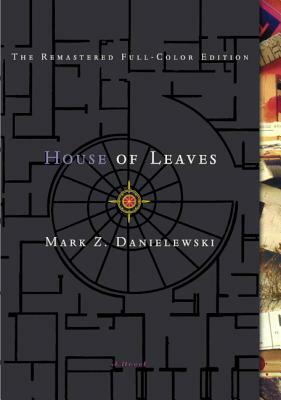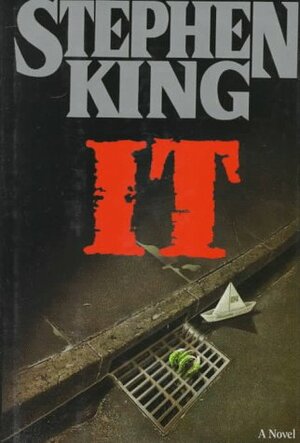Take a photo of a barcode or cover
The 50 Best Horror Books of All Time (Esquire, 2022) - NEW VERSION
100 participants (50 books)
Overview
Horror is a broad church. Definitions abound.
For some, horror is a genre founded on trope and convention: a checklist of blighted houses and monstrous secrets, men in masks and women in white nightgowns. For others it hinges on atmosphere and tone.
This is before we even attempt a historical context. Scholars trace the legacy of literary horror back to the British Gothic fictions of the eighteenth century, when castles were haunted, monks were evil, and anywhere beyond the edges of Protestant England was tinged sinister. Others locate the genre’s origins in a slate of late-Victorian novels and their roster of horror icons. Dracula, Dorian Gray, Dr. Jekyll–these figures emerged from a culture in crisis, when twin anxieties about masculinity and modernity birthed urban nightmares. Contemporary readers may look no further than the horror ‘boom’ of the 1970s, 1980s and early 1990s. It was an era dominated by brand-name authors, with epic sales and matching page-lengths.
With such a weight of contention, any attempt at a list of ‘best’ horror novels is doomed to disagreement. That’s fine. All lists are subjective. We have, however, tried to celebrate the breadth of horror—to highlight those books that establish something about the genre or push it forward into new realms. It’s worth noting that we have confined our choices to novels. Short horror fiction has a parallel but distinct history that would require a survey all of its own.
You will see some unexpected inclusions in this list, and some surprising absences. Certain big names are missing because their greatest contributions are in short form, or because their books tread ground better travelled by others. Equally, some of these choices may cause horror fans’ eyes to wrinkle in confusion. But perhaps, in the end, that’s the secret of horror: it’s personal. It’s about how it makes you feel.
Here, then, is our ranking of the best horror novels of all time.
All notes on the books come from the article:
All notes on the books come from the article:
The 50 Best Horror Books of All Time (Esquire, 2022) - NEW VERSION
100 participants (50 books)
Overview
Horror is a broad church. Definitions abound.
For some, horror is a genre founded on trope and convention: a checklist of blighted houses and monstrous secrets, men in masks and women in white nightgowns. For others it hinges on atmosphere and tone.
This is before we even attempt a historical context. Scholars trace the legacy of literary horror back to the British Gothic fictions of the eighteenth century, when castles were haunted, monks were evil, and anywhere beyond the edges of Protestant England was tinged sinister. Others locate the genre’s origins in a slate of late-Victorian novels and their roster of horror icons. Dracula, Dorian Gray, Dr. Jekyll–these figures emerged from a culture in crisis, when twin anxieties about masculinity and modernity birthed urban nightmares. Contemporary readers may look no further than the horror ‘boom’ of the 1970s, 1980s and early 1990s. It was an era dominated by brand-name authors, with epic sales and matching page-lengths.
With such a weight of contention, any attempt at a list of ‘best’ horror novels is doomed to disagreement. That’s fine. All lists are subjective. We have, however, tried to celebrate the breadth of horror—to highlight those books that establish something about the genre or push it forward into new realms. It’s worth noting that we have confined our choices to novels. Short horror fiction has a parallel but distinct history that would require a survey all of its own.
You will see some unexpected inclusions in this list, and some surprising absences. Certain big names are missing because their greatest contributions are in short form, or because their books tread ground better travelled by others. Equally, some of these choices may cause horror fans’ eyes to wrinkle in confusion. But perhaps, in the end, that’s the secret of horror: it’s personal. It’s about how it makes you feel.
Here, then, is our ranking of the best horror novels of all time.
All notes on the books come from the article:
All notes on the books come from the article:
Challenge Books

House of Leaves
Mark Z. Danielewski
2. If Shirley Jackson opened the era of the modern haunted house, House of Leaves is the closing parenthesis. Such a typographical metaphor is apt, considering the games that Danielewski plays in his oh-so-meta tangle of words, image, and white space. Where to even begin summarising this book? At the centre is The Navidson Record—an academic text deconstructing an inexplicable video of a house that is larger on the inside than the outside. With as much of the story told through footnotes as actual text, that would be enough postmodern trickery for most novels, but it’s just one of the many competing narratives in play here. We are also given the story of Jonny Truant, who finds the Navidson Record and notes down its disturbing influence on his own life. These twin narratives coil and overlap, turning the book into a labyrinth that matches the impossible space inside Will Navidson’s walls. All these words have done little justice to the intricacy of Danielewski’s book, but it’s also crucial to note that beneath all the gameplaying and technique lies an authentically frightening story about a family and their troubled home. House of Leaves, therefore, is both groundbreaking and traditional—the high point of contemporary horror’s attempt to expand its own boundaries. It is a unique monolith in literature, and nothing since has matched its ambition or impact.

It
Stephen King
1. At nearly 1200 pages, IT is by far the longest novel on this list. It’s also the richest and most rewarding. Despite the book’s size, its plot can be reduced quite easily: a group of misfit kids fight a great evil in their small town during one long summer. Decades later, they return to fight it again. Such a summary is a disservice, almost a crime—like describing Van Gogh’s Café Terrace at Night as brushstrokes on canvas, or Chuck Berry’s Johnny B. Goode as notes played in sequence. Some things transcend.
King intended the book to be the ultimate horror novel: a book about the nature of fear. Later, he confessed: “IT has always been a book about making the terrible transition over the bridge from childhood to adulthood.” And what a dark journey it is. Child murder, sexual abuse, bullying, racism, homophobia, and all the dormant prejudices of American life—King weaves them together into an epic backdrop for the ultimate fight between good and evil. The twist, however, is that despite its child-killing, sewer-dwelling clown, IT is far more interested in what opposes evil than it is in the evil itself. It’s an ode to bravery and friendship and love because, in the end, all you can do is “be true, be brave, stand. All the rest is darkness.”
